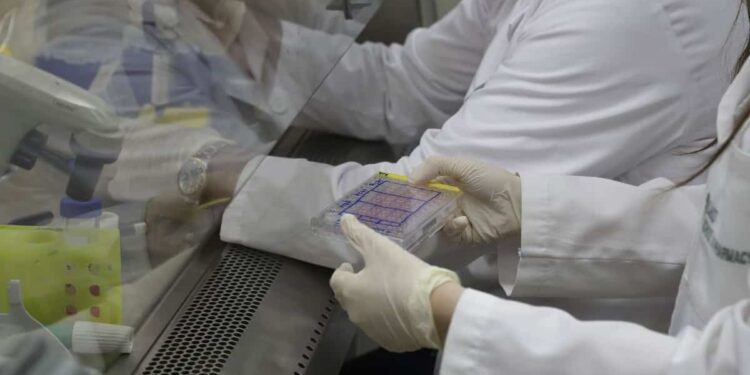The myc protein is part of the activity of healthy cells, but when cancer cells grow, it becomes disrupted, abandoning its normal role to promote the spread of cancer; scientists may have found a way to prevent this.
“Normally, myc activity is strictly controlled. In cancer cells, it becomes overactive and is not regulated properly,” explains biochemist Min Xue.
By successfully curbing myc activity, researchers hope to achieve a method that would stop one of the ways cancer hijacks healthy biological processes in order to survive.
A complex task
Part of the problem with controlling myc is that it is an amorphous protein, which doesn’t really have a structure that can be targeted. This makes it difficult for medications to effectively identify myc and stop it from behaving normally.
However, a team from the University of California, Riverside (UCR) has succeeded in developing a peptide compound capable of binding or interacting with myc and helping it regain control.
The results of their research were published in the Journal of the American Chemical Society.
“Myc is less a food for cancer cells and more a steroid that promotes rapid cancer growth,” says Xue, who works for UCR.
“This is why myc is the culprit in 75% of all human cancer cases,” he adds.
Mr. Xue says that the importance of myc in relation to cancer makes neutralizing its deleterious activity one of the “holy grails of anticancer drug development.” He adds that he and his colleagues are particularly “enthusiastic” that such a remedy is now within their reach.
The researchers were able to study the small amounts of structure that myc has in order to build a library of peptides that could latch onto this structure. One peptide in particular, NT-B2R, has been shown to be especially effective at deactivating myc.
NT-B2R successfully binds to myc and in doing so modifies the way in which its cells regulate many of their genes, thereby reducing the metabolism and proliferation of cancer cells.
Previous work
The key to this breakthrough lies in previous work by some of the same researchers, who found that by changing the structure and shape of peptides, these molecules became better able to interact with amorphous proteins such as myc.
“Peptides can take on a wide variety of shapes and positions. Once you bend and connect them to form rings, they cannot assume other possible shapes, giving them a low level of randomness. This makes it easier to bond,” says Xue.
“We improved the binding performance of this peptide by two orders of magnitude compared to previous versions. This brings us closer to our drug development goals,” he says.
There is still much work to be done, but these initial results are promising.



